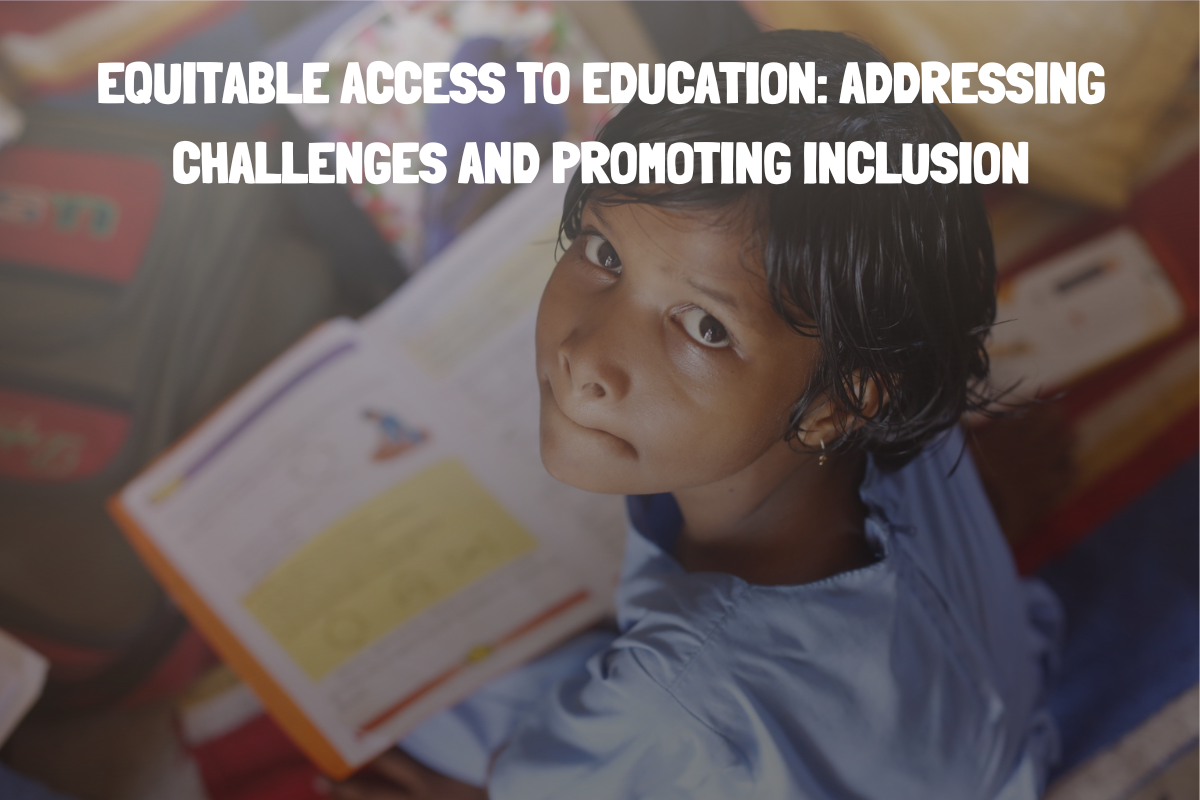Equitable Access to Education: Addressing Challenges and Promoting Inclusion
By~ Scholar Planet
Created At: 14 Jul, 2023

Equitable access to quality
education is essential for the development of individuals and societies.
However, achieving this goal remains a significant challenge worldwide. This
article explores the importance of equitable access to education, identifies
the hurdles that hinder its realization, and suggests potential solutions to
ensure equal opportunities for all learners.
The Significance of Equitable
Access to Education:
Equitable access to education
goes beyond enrolment numbers; it encompasses fair and inclusive opportunities
for quality learning. Here are some key reasons why it is crucial:
1. Social and Economic
Development: Education is a catalyst for social and economic progress.
Equitable access to education fosters human capital development, stimulates
innovation, and drives economic growth. It breaks the cycle of poverty and
empowers individuals to contribute positively to their communities.
2. Social Cohesion and
Equality: Education plays a pivotal role in fostering social cohesion and
equality. It builds understanding, empathy, and tolerance, creating a more
inclusive society. Equitable access ensures that no individual or group is left
behind, reducing social disparities.
3. Empowerment: Education
empowers individuals by providing knowledge, skills, and critical thinking
abilities. It enables them to make informed decisions, exercise their rights,
and participate actively in civic life. Equitable access to education breaks
barriers and promotes personal and societal empowerment.
Challenges to Equitable
Access:
Several challenges hinder the
achievement of equitable access to education:
1. Economic Barriers: High
education costs create significant barriers for disadvantaged individuals and
families. Economic disparities limit access to quality education and perpetuate
educational inequalities.
2. Geographical Constraints:
Remote locations, inadequate transportation infrastructure, and limited school
facilities hinder access to education. Learners in rural or marginalized areas
face challenges in accessing educational opportunities.
3. Gender and Socio-cultural
Factors: Gender biases and socio-cultural norms restrict educational
opportunities for girls and marginalized groups. Discrimination, early
marriages, gender-based violence, and societal expectations limit their access
to education.
4. Lack of Infrastructure and
Resources: Insufficient educational infrastructure, resources, and teacher
shortages impact access to quality education. Inadequate resources limit
learning opportunities for students.
Solutions for Equitable
Access:
Addressing challenges and
ensuring equitable access to education requires concerted efforts:
1. Eliminating Gender and
Socio-cultural Barriers: Efforts should eliminate gender biases and
socio-cultural barriers. Raising awareness, empowering girls and women, and
promoting gender-responsive pedagogy are crucial.
2. Improving Infrastructure
and Resources: Investments in educational infrastructure, teacher training,
and teaching materials are essential for equitable education.
3. Scholarships and Financial
Assistance: Scholarships and financial aid can mitigate economic barriers
and enable access to education, particularly for disadvantaged students.
4. Community Engagement and
Partnerships: Collaboration among governments, communities, and
organizations is vital. Engaging communities helps identify local needs,
develop context-specific solutions, and mobilize resources.
By prioritizing equitable access
to quality education, we can empower individuals, foster social cohesion, and
create a brighter future for all.
We at
Scholar Planet ensure equitable access to education by promotion inclusion in
education. Download our app to know more:
https://play.google.com/store/apps/details?id=com.gcap.jumbleword
